Excess pressure in your hot water heater is not a good sign. It may seem like a simple occurrence, but this can lead to catastrophe and turn your water heater into a nightmare. So what causes too much pressure in a hot water heater? We looked into this issue, and here is what we found out:
There are four probable reasons why there is too much pressure in your hot water heater. First is the municipal water system that sends water to your area. Second, the heater setting is set too high.
Third, your water heater has one or more malfunctioning parts. Lastly, your tank does not have the space to accommodate that excess pressure.
We will discuss each reason further to help you figure out how you can address the problem. Also, you will learn about the dangers of having too much pressure on your heater and the things you should do to prevent this in the future. We have a lot more to talk about, so let's get started
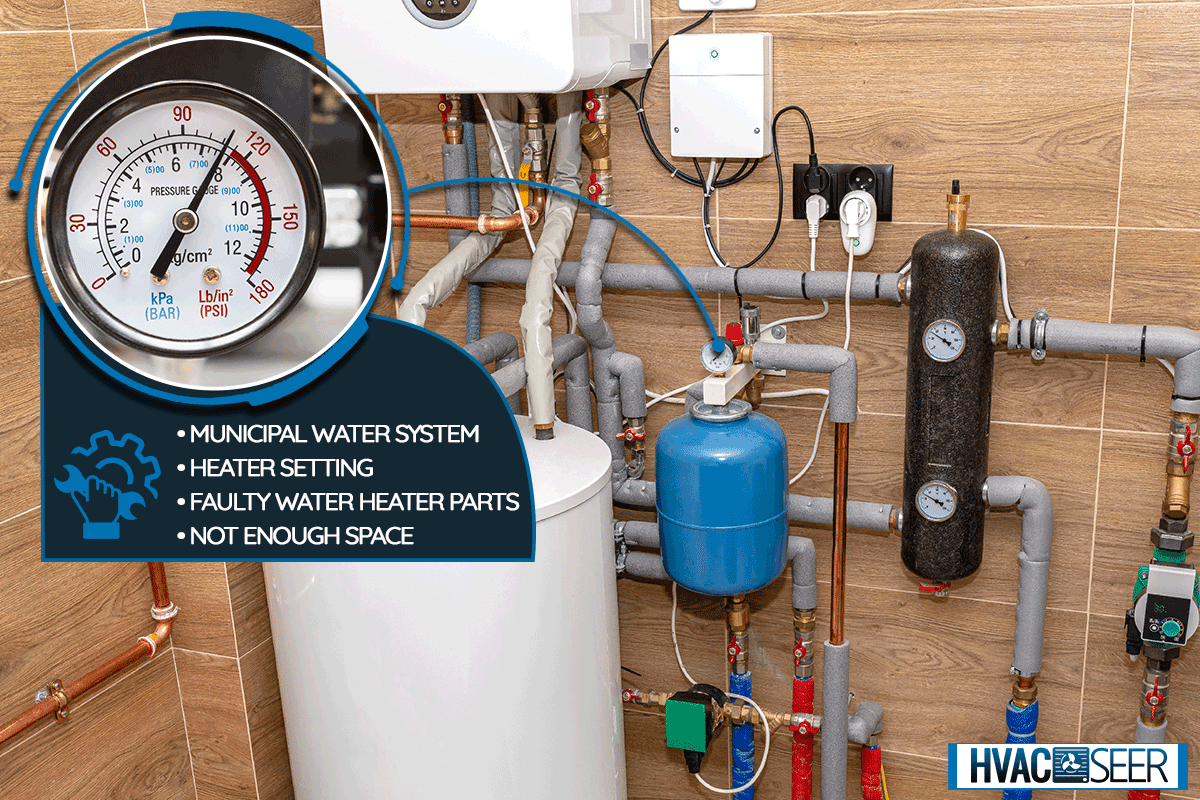
Causes Of Too Much Pressure In Hot Water Heater
First of all, it is a good thing that you have figured out that there is too much pressure in your water heater. Usually, the damage is not noticeable unless it has been severe already. Your heater can have a leak, which will increase your bill and waste water. It can also damage your property in the long run.
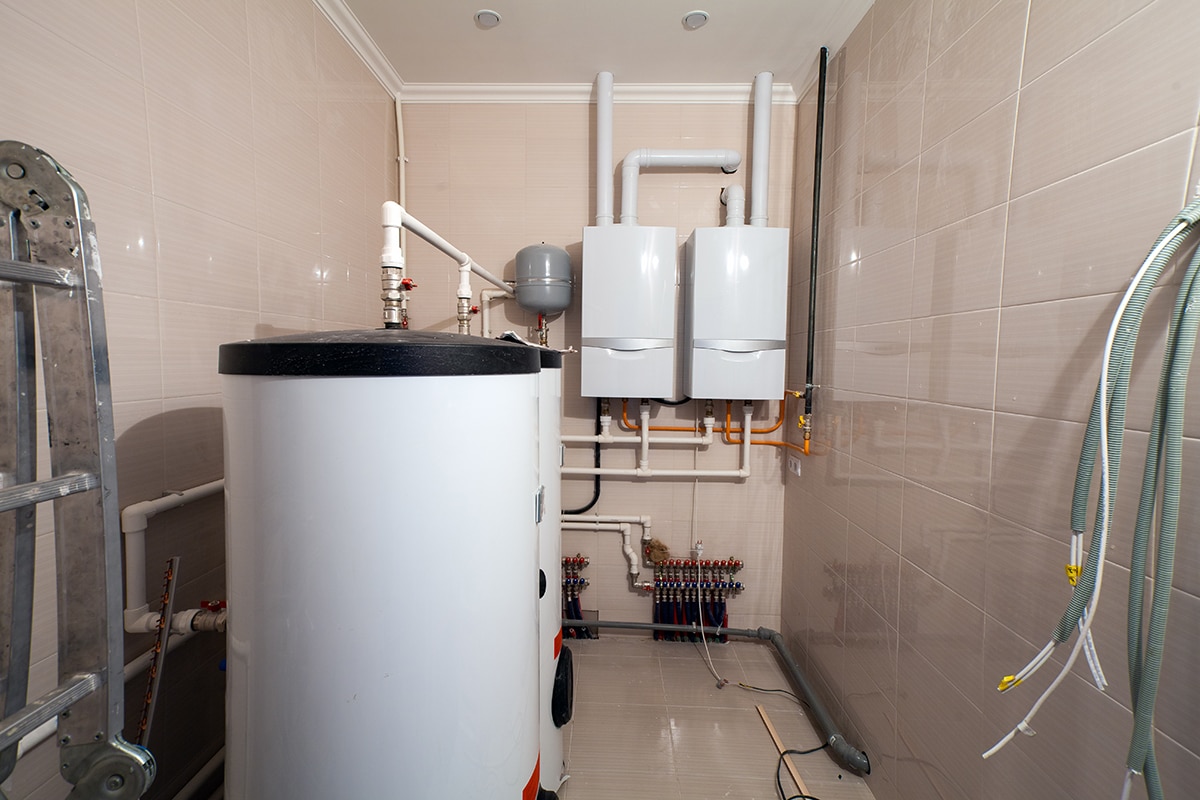
Worst, it can break your water heater since the recommended pounds per square in or PSI is 50 to 80 only. If the pressure exceeds that, it may shorten your appliance's life.
However, if you just suspect that there's a problem, these are some things you should check to make sure your water heater's got too much pressure.
- Turn on one of the faucets in your home. Then go to another faucet and see if there is a leak.
- Watch out for the first flow of water when you open your tap. If the water is bursting in an unusual amount and strength, the pressure is too high.
- See if there is a popping or banging sound on the water pipes.
- Other appliances in your home such as the dishwasher or clothes washer have water dripping around them.
The leaks may be more evident at night. This is because fewer people are using water during that time so the pressure in your system is higher than the rest of the day.
Do any of these sound familiar to you? If the answer is yes, then you need to know the cause behind the problem.
The Municipal Water System
If you live near the local hydrant, you will most likely be one of the first who will receive the 100 psi or higher that is pumped to reach the houses located far away from it. This may be what is causing your water heater to build up too much pressure.
To reduce the pressure in your water heater, look for the pressure-relief valve located at the top or side part of the tank. Once spotted, turn it upwards until you notice the hot water flowing out through the pipe at the bottom. To close, simply turn it back down.
High Setting
One probable reason for the excess pressure is that you might have increased the temperature setting of your heater. The increase in temperature makes the water hotter. As a result, the pressure will also rise.
Not only it will build up too much pressure in your water heater, but it can also burn your skin. If it is set to more than 140°F, you should lower it to between 130°F and 140°F as recommended by professionals.
Faulty Water Heater Parts
There are four parts of your water heater that may be the reason behind the problem—faulty thermostat, wiring, and reset button as well as the heating element.
To give you an overview of why they become a factor, here are their uses in your water heater:
- Thermostat - This is what keeps the temperature in your water heater at the right point. If it senses a temperature above 150 degrees, the thermostat will command the power to be disconnected from the heating elements to bring the temperature down.
- Wiring - Wiring connects and sends electricity to your devices for them to operate. If there is something wrong with them, you might find that your heater is not running properly.
- Reset button - A safety device that turns off the water heater's power supply when the water hits 180 °F. A malfunctioning reset button may cause your heater to build up too much pressure due to the extreme temperature inside.
Not Enough Space
Cool water requires more space since it expands as it is heated. We learned earlier that the hotter it is, the more pressure will be formed.
That excess amount of water will need someplace to go. In that sense, you will need an expansion tank. The expansion tank is where the excess water goes to keep the pressure level. If you do not have one, that may be the reason why there the pressure has been stuck inside.
Want to know how long a water heater stays hot? Read this: How Long Should A 40-Gallon Water Heater Stay Hot?
Can Too Much Pressure Make A Water Heater Explode?
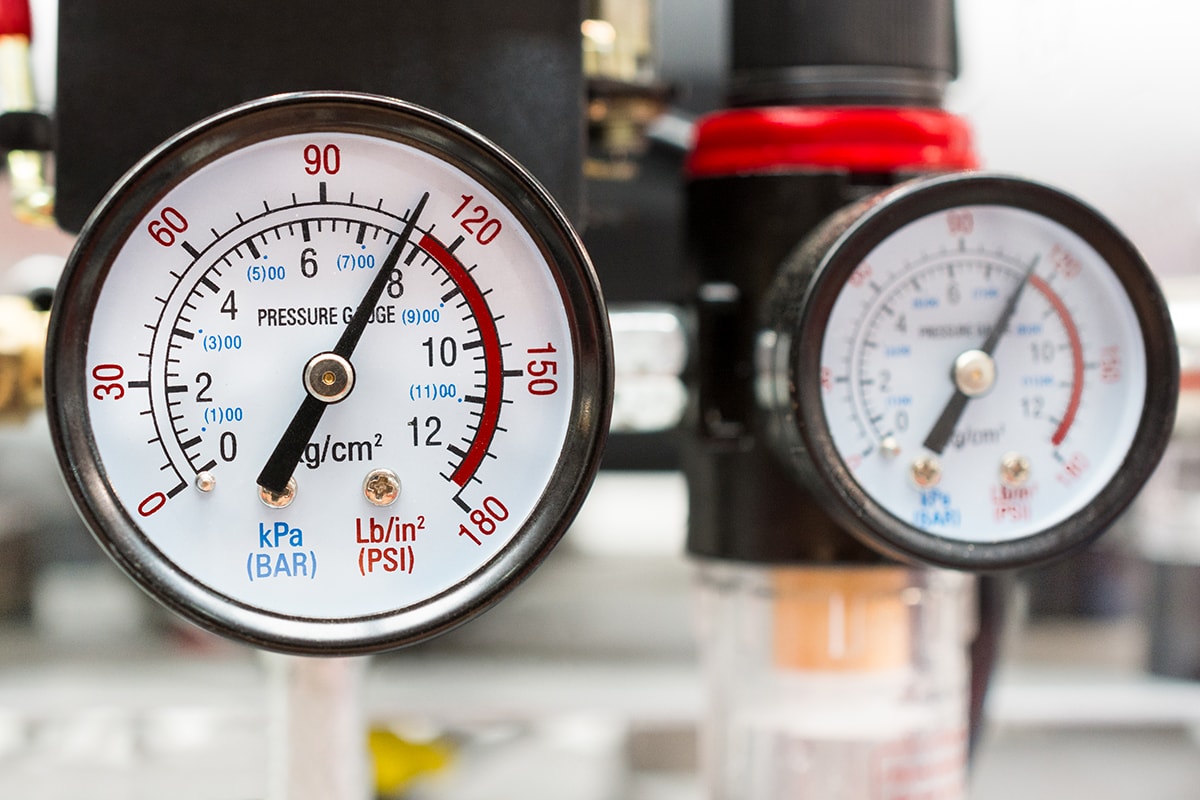
Yes, pressure that's too high might cause your water heater to explode. Other signs that indicate your heater may burst are a gas leak, popping or knocking sounds, and improper installation (especially the controls and connections).
To prevent the water heater from exploding, here are a few tips:
- Always check your t/p relief valve's condition
- Maintain the temperature level. It should only be heating between 120 to 125 degrees.
- Have an annual heater cleaning and checkup
- Make sure any installations or repairs are done by a licensed professional plumber.
How Much Is Water Heater Repair?
If you want an idea of how much you will spend to fix the probable reasons why your water heater has too much pressure, here is a short list of price estimations of repair depending on part or service.
- Pressure relief valve: $20 - @200
- Electric thermostat: $150 - $200
- Heating element: $2oo - $300
If you want to have your water heater cleaned, it will cost you up to $200.
Is your water heater leaking? Find out what you should do here: Hot Water Heater Leaking; What To Do?
Should You Get A New Water Heater?
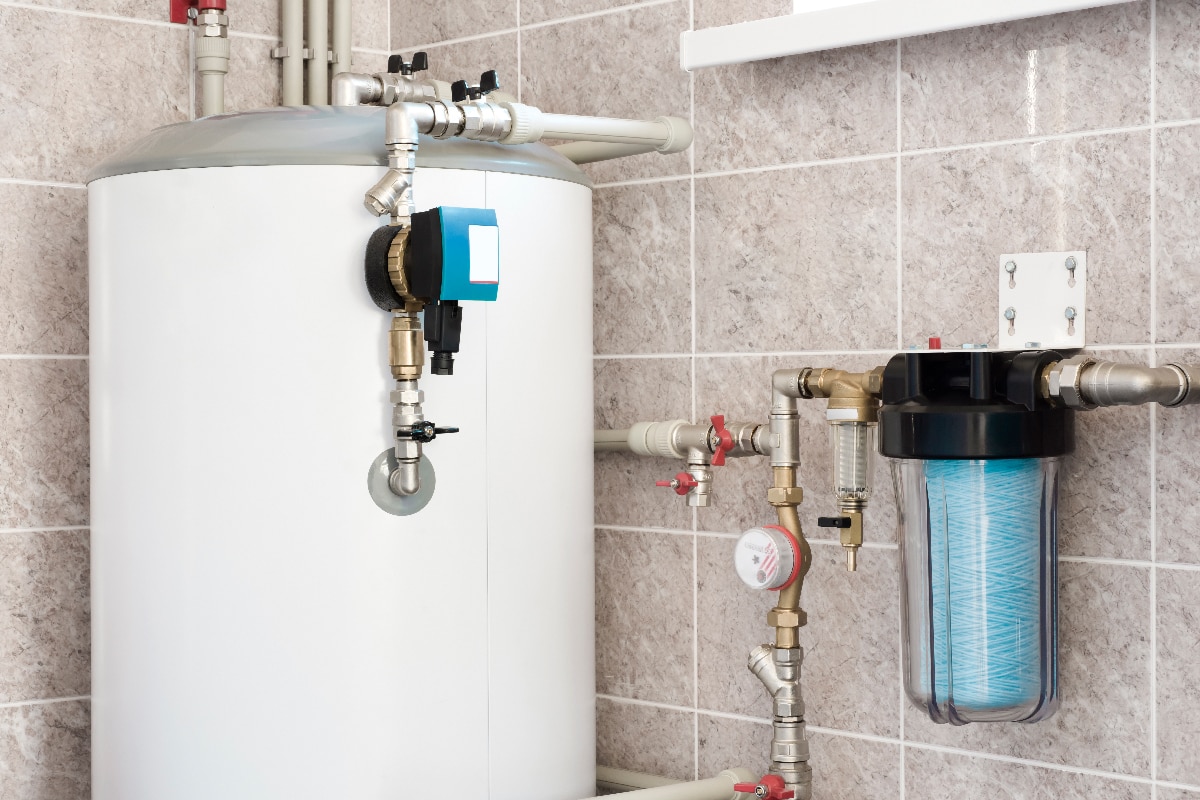
Once you see the following signs, you should start thinking of replacing your water heater.
- Rusty or sandy water
- Not producing hot water
- Bad-smelling water
- Malfunctioning thermostat
- Unusual noises
- Recurring repair
- Leaking on the water heater
Do these sound familiar? They may occur one way or another since a water heater's lifespan is 8 to 12 years. However, if you have the tankless one, it should last up to 20 years.
Curious how a boiler and a water heater are different? Read this: Boiler Vs Water Heater; What's The Difference?
Tankless Water Heater Or Not?
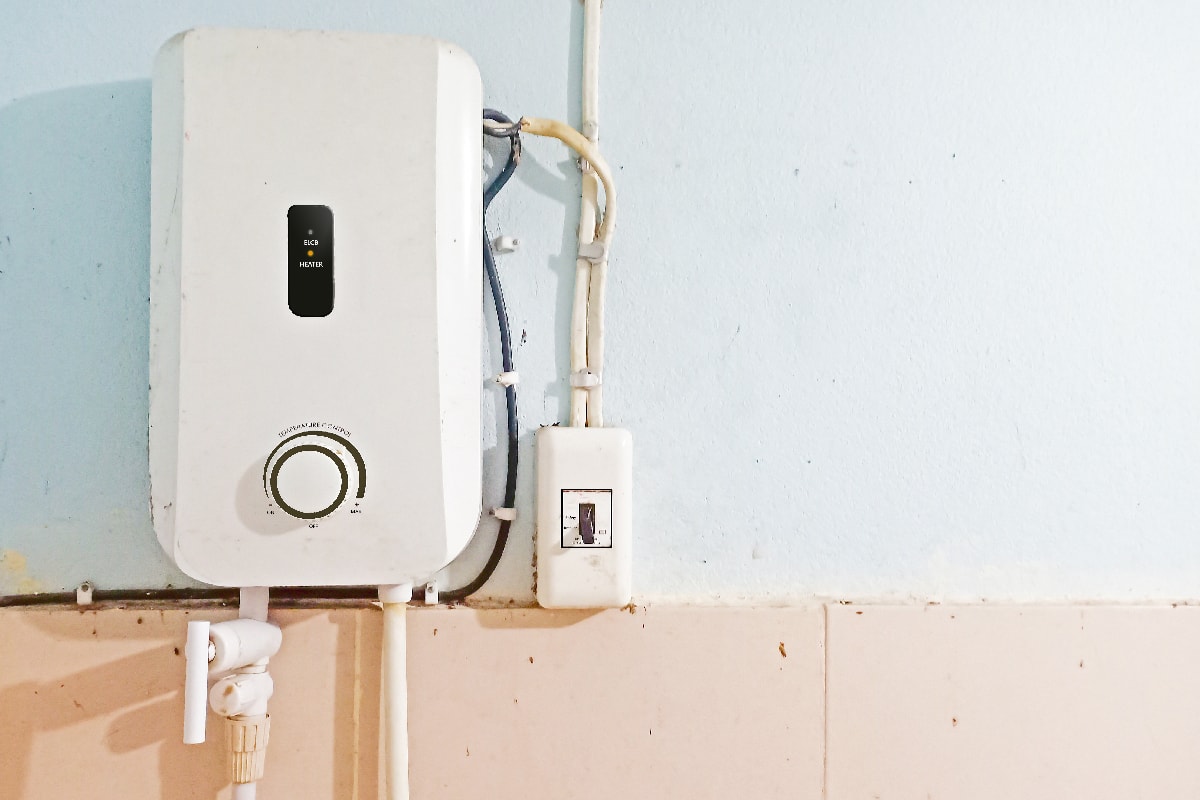
If you are considering buying a new water heater, keep in mind that are two main types which you can choose from—tank and tankless. The difference between the two is very obvious—one stores hot water in a tank while the other one doesn't.
However, despite that 'little' variation, there are huge gaps in the way they benefit a user. To show you what we are talking about, here are their pros and cons for better comparison.
Advantages
Tank water heater:
- Has lower initial cost
- Cheaper repair cost
- Operates simpler
Tankless water heater:
- Cost-efficient
- Saves you more money
- Uses less energy
- Instant and unlimited hot water
- Takes up small space
- Has a longer lifespan
- Can be installed outside
Disadvantages
Tank water heater:
- Uses more energy
- Occupies more space for the tank
- Can only be situated indoors
- Limited hot water at a time
- Takes longer time to heat water
Tankless water heater:
- More expensive initial and installation costs as well as repair
- May have a hard time keeping up when consuming too much hot water simultaneously
How Much To Install A Water Heater
The installation price depends on the type you will have. Tanked water heaters range from $650 to $2,100 while tankless water heater costs between $1,000 to $3,500. This includes the materials and labor cost.
Conclusion
The reason why your water heater has too much pressure might be because your home is near the local hydrant, you set the temperature too high, or some part of your heater (such as the thermostat, wiring, and reset button) is malfunctioning.
Additionally, you might not have an expansion tank to store excess water.
To fix the problem, you should hire a licensed professional, since a water heater with too much pressure may lead to a lot of damage or—worse—an explosion.
